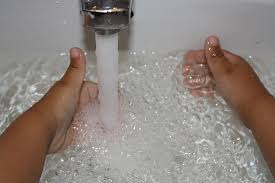The qualitative characteristics of tap water

From a qualitative point of view, one of the most common beliefs about tap water is that bottled water is purer and healthier than tap water because it has less limestone. In reality, bottled water contains "limestone" in the same way as tap water. Furthermore, it is not true that limestone is bad for health: in fact the term limestone commonly indicates the more or less high concentration in water of mineral salts indispensable for life, such as calcium and magnesium. The higher the concentration, the harder the water is defined.
Calcium is involved in the metabolism of bone tissue both in the growth phase, in old age and in menopausal women. It represents a fundamental structural component of our bones and the continuous calcium turnover is decisive in maintaining the stability of our bone scaffold, hence its essential role in the prevention of osteoporosis. Calcium as an ion also actively participates and regulates the mechanisms of muscle contraction, nerve impulse transmission, cardiac muscle activity, membrane permeability, hormonal release, blood coagulation, intracellular signaling, activation of some enzymes and cell multiplication and differentiation. All functions that make the essentiality of football evident for life.
Magnesium is another vital and essential nutrient in numerous metabolic processes such as lipid biosynthesis, proteins and nucleic acids, the formation of the "second messenger" AMP-cyclic and glycolysis. Magnesium also regulates the energy-dependent transport processes of molecules across the cell membrane, maintains the membrane potential of the nerve cell and of the muscles and participates in the transmission of the nerve impulse. It also supports the processes of mineralization and development of the skeletal system and supports the activity of over 300 enzyme systems.
Therefore mineral salts are essential to keep our body healthy. Indeed, within the limits of the parameters indicated by the law, they have a protective factor for the kidneys and the heart. According to the World Health Organization, drinking water supplies 5 to 20 percent of the daily calcium and magnesium needs.


